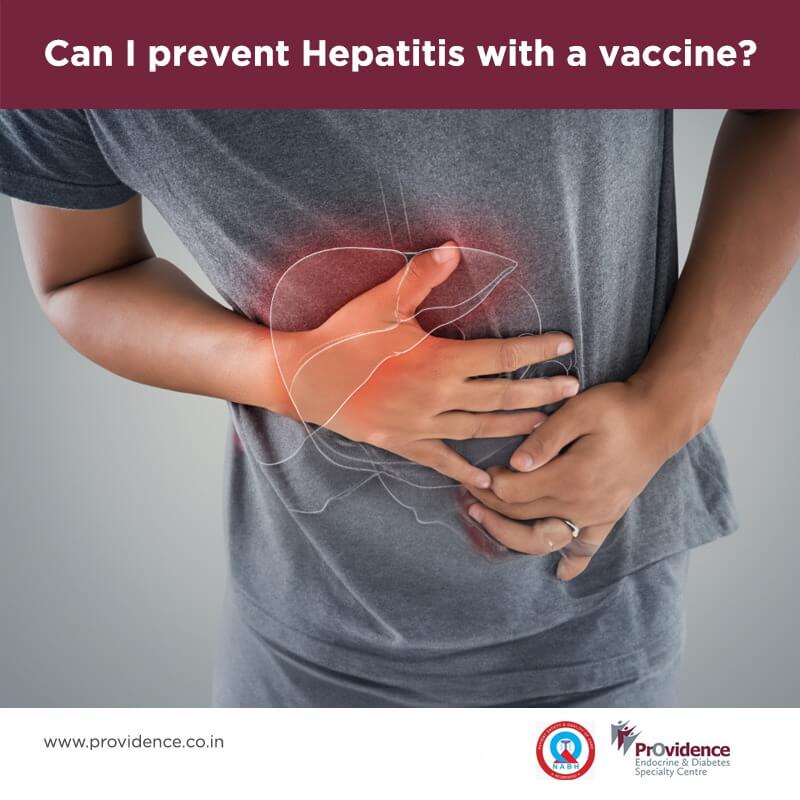Hepatitis is an inflammation of the liver caused by various viruses, bacteria and toxic agents, some of which can be fatal. There are multiple types of viral hepatitis; the common ones are Hepatitis A, B, C, D, and E. Hepatitis B, C and D are transmitted by injections, blood and body fluids. Hepatitis A and E are caused by contaminated food. The symptoms of hepatitis include fatigue, nausea, abdominal pain, loss of appetite and low-grade fever. Although Hepatitis A clears up within a month, Hepatitis B may sometimes become chronic. Hepatitis B can lead to chronic hepatitis, cirrhosis and liver cancer.
Hepatitis A vaccine is given as two injections separated by six months. It has 95 % protection against Hepatitis A. Anyone can take the hepatitis A vaccine, but it is strongly recommended for international travellers, those with chronic liver disease, people at high risk of transmission like drug abusers and men who have sexual contact with other men.
The Hepatitis B vaccine is given in 3 doses at 0, 1 and 6 months. The vaccine provides more than 95 % protection. Currently, newborn babies are given the Hepatitis B vaccine at birth. Anyone below the age of 60 years who has not received the Hepatitis B vaccine should take it. It is also recommended for those with healthcare workers, chronic liver disease, people at high risk of transmission like drug abusers and men who have sexual contact with other men. Please check with your physician if you are the right candidate for hepatitis vaccines.



